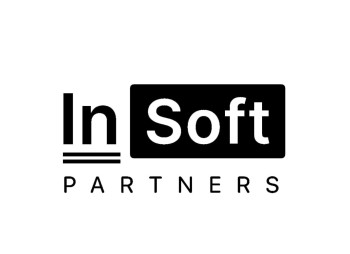Ukrainian InSoft Partners informed about the purchase of a stake in the outsourcing company Forbytes.
Forbytes was founded in 2011 by Orest Chaikivskyi and Taras Demkovych. The company has over 100 employees, according to InSoft Partners, mostly at the senior level. Most of Forbytes’ customers are located in Sweden.
InSoft Partners currently has shares in 5 companies with a total of about 600 employees. If we calculate $55,000 per head, the company’s annual revenue starts at $33 million.
In 2016, InSoft began as an investment fund, then evolved into an investment management company, where, in addition to Horovyi, Roman Prokofiev, Yevhen Sobakariov from Jooble, and Vasyl Khmelnytskyi from UFuture were also partners.
Now from an investment management company, InSoft Partners has transformed into a Software Development Holding. The main difference is that the business is no longer about the difference between how much was invested and how much was earned at exits.
“After many years of working with companies in software development, we’re seeing that it is the holding model (or, in our case, rather the ecosystem) that is best suited for the systematic exponential development of portfolio businesses. Because we are operationally involved in our companies on a day-to-day basis, by combining separate expertise (in lead generation, delivery work, and finance) we can significantly accelerate the scaling of companies. In addition, the holding model allows companies to quickly move to another league in order to sign contracts with larger clients,”, Vitaliy Horovyi, the founder of InSoft Partners, notes.
According to Horovyi, InSoft is not a fund to count the acquisitions and sales. If it’s expedient, the team sells, if not, they’re ready to be around for the whole life, plus they build their own projects. If counting full-fledged agreements, there were 12 of them. So far, the firm has made 5 exits, with the biggest multiplicator being 4x at the exit.
Talking about the practical differences of the model change, Horovyi says the team avoids exit logic. They can be but are not the goal. InSoft will now level up portfolio companies as much as possible in order to increase both size and profit. Accordingly, the bigger they become the more dividends. Horovyi also doesn’t rule out some future mergers, if the partners see some sense in them.
The important thing for the team is to share expertise from company to company, test different hypotheses in different companies, and then integrate the obtained best practices into all of them. This significantly lowers the cost of experiments and speeds them up. And InSoft itself also helps with sales.
“For most companies, this model transformation to get big customers is difficult. They are able to scale the current size of clients, but companies are growing and they need larger contracts and, accordingly, clients. And they don’t know how to work with them. It becomes a chicken-or-egg problem, where you need to be bigger and sell differently so that bigger companies work with you, and you can become bigger only by already having such customers,”





